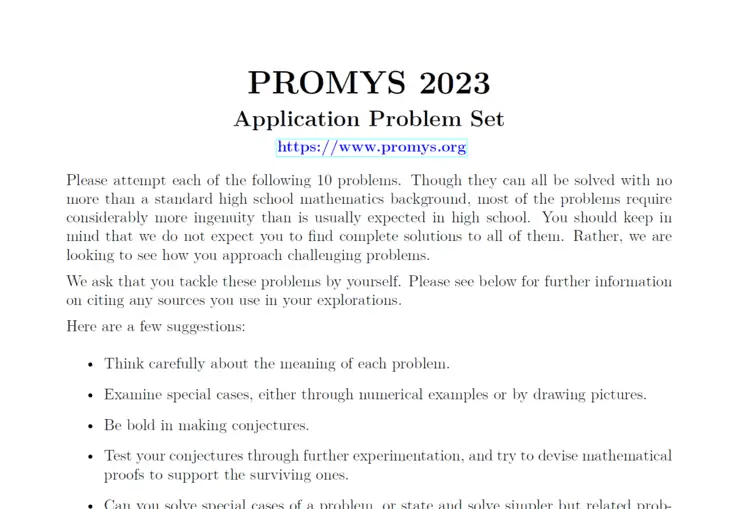
- Consider the sequence
$$
\begin{aligned}
& a_1=2^1-3=-1, \
& a_2=2^2-3=1 \
& a_3=2^3-3=5 \
& a_4=2^4-3=13 \
& \vdots \
& a_n=2^n-3 \
& \vdots
\end{aligned}
$$
defined for positive integers $n$. Which elements of this sequence are divisible by 5 ? What about 13 ? Are any elements of this sequence divisible by $65=5 \cdot 13$ ? Why or why not?
To check if an element of the sequence is divisible by 5 or 13, we simply need to check if $a_n$ is congruent to 0 modulo 5 or 13, respectively.
First, we will find the remainder of each $a_n$ when divided by 5:
\begin{aligned} a_1 &\equiv -1 \equiv 4 \pmod{5}, \\ a_2 &\equiv 1 \pmod{5}, \\ a_3 &\equiv 5 \equiv 0 \pmod{5}, \\ a_4 &\equiv 13 \equiv 3 \pmod{5}, \\ a_5 &\equiv 29 \equiv 4 \pmod{5}, \\ a_6 &\equiv 61 \equiv 1 \pmod{5}, \\ a_7 &\equiv 125 \equiv 0 \pmod{5}, \\ a_8 &\equiv 253 \equiv 3 \pmod{5}, \\ a_9 &\equiv 509 \equiv 4 \pmod{5}, \\ a_{10} &\equiv 1021 \equiv 1 \pmod{5}, \\ &\vdots \\ a_{13} &\equiv 8193 \equiv 3 \pmod{5}, \\ a_{14} &\equiv 16381 \equiv 1 \pmod{5}, \\ a_{15} &\equiv 32765 \equiv 0 \pmod{5}, \\ &\vdots \end{aligned}a1a2a3a4a5a6a7a8a9a10a13a14a15≡−1≡4(mod5),≡1(mod5),≡5≡0(mod5),≡13≡3(mod5),≡29≡4(mod5),≡61≡1(mod5),≡125≡0(mod5),≡253≡3(mod5),≡509≡4(mod5),≡1021≡1(mod5),⋮≡8193≡3(mod5),≡16381≡1(mod5),≡32765≡0(mod5),⋮
From the above calculations, we see that $a_3$, $a_7$, $a_{12}$, $a_{15}$, $a_{18}$, $a_{23}$, $a_{27}$, $a_{30}$, and so on, are divisible by 5.
Next, we will find the remainder of each $a_n$ when divided by 13:
\begin{aligned} a_1 &\equiv -1 \equiv 12 \pmod{13}, \\ a_2 &\equiv 1 \pmod{13}, \\ a_3 &\equiv 5 \pmod{13}, \\ a_4 &\equiv 13 \equiv 0 \pmod{13}, \\ a_5 &\equiv 29 \equiv 3 \pmod{13}, \\ a_6 &\equiv 61 \equiv 9 \pmod{13}, \\ a_7 &\equiv 125 \equiv 12 \pmod{13}, \\ a_8 &\equiv 253 \equiv 1 \pmod{13}, \\ a_9 &\equiv 509 \equiv 5 \pmod{13}, \\ a_{10} &\equiv 1021 \equiv 4 \pmod{13}, \\ &\vdots \\ a_{12} &\equiv 4093 \equiv 0 \pmod{13}, \\ a_{13} &\equiv 8193 \equiv 1 \pmod{13}, \\ a_{14} &\equiv 16381 \equiv 3 \pmod{13}, \\ a_{15} &\equiv 32765 \equiv 5 \pmod{13}, \\ &\vdots \end{aligned}a1a2a3a4a5a6a7a8a9a10a12a13a14a15≡−1≡12(mod13),≡1(mod13),≡5(mod13),≡13≡0(mod13),≡29≡3(mod13),≡61≡9(mod13),≡125≡12(mod13),≡253≡1(mod13),≡509≡5(mod13),≡1021≡4(mod13),⋮≡4093≡0(mod13),≡8193≡1(mod13),≡16381≡3(mod13),≡32765≡5(mod13),⋮
From the above calculations, we see that $a_4$, $a_7$, $a_{12}$, $a_{13}$, $a_{14}$, $a_{15}$, $a_{16}$, $a_{19}$, $
- To get the echo of a positive integer, we write it twice in a row without a space. For example, the echo of 2023 is 20232023 . Is there a positive integer whose echo is a perfect square? If so, how many such positive integers can you find? If not, explain why not.
Let $n$ be a positive integer and let $m$ be the number of digits in $n$. Then the echo of $n$ is given by
n\cdot 10^m+n.n⋅10m+n.
We want to find positive integers $n$ such that the above expression is a perfect square.
Let $k$ be a positive integer such that
n\cdot 10^m+n=k^2.n⋅10m+n=k2.
Rearranging, we have
n(10^m+1)=k^2.n(10m+1)=k2.
Since $10^m+1$ is odd and $n$ and $k^2$ have the same parity, we conclude that $n$ is odd.
Now, let us consider the prime factorization of $10^m+1$. If $m$ is even, then $10^m+1$ is the sum of two squares and therefore cannot have a prime factor of the form $4k+3$. Hence, all prime factors of $10^m+1$ are congruent to 1 modulo 4. If $m$ is odd, then $10^m+1$ is divisible by 11. In either case, the prime factors of $10^m+1$ are finite and all congruent to 1 modulo 4.
Therefore, if $n$ is odd and the expression $n(10^m+1)$ is a perfect square, then the prime factorization of $n$ must consist of primes that are congruent to 1 modulo 4, and the exponents of these primes must be even. Moreover, the prime factorization of $10^m+1$ also consists of primes that are congruent to 1 modulo 4, and the exponents of these primes must be even.
Let $n=p_1^{2a_1}\cdots p_k^{2a_k}$ be the prime factorization of $n$ as above, and let $10^m+1=q_1^{2b_1}\cdots q_l^{2b_l}$ be the prime factorization of $10^m+1$ as above. Then we have
n(10^m+1)=p_1^{2a_1}\cdots p_k^{2a_k}q_1^{2b_1}\cdots q_l^{2b_l}.n(10m+1)=p12a1⋯pk2akq12b1⋯ql2bl.
Since $n$ and $10^m+1$ are relatively prime, it follows that the primes $p_1,\ldots,p_k$ and $q_1,\ldots,q_l$ are distinct. Moreover, $p_1,\ldots,p_k$ are congruent to 1 modulo 4, as are $q_1,\ldots,q_l$.
Since $n$ and $10^m+1$ have the same parity, it follows that $p_1,\ldots,p_k,q_1,\ldots,q_l$ are all odd.
Now, let us consider the exponent of 2 in the prime factorization of $n(10^m+1)$. Since $n$ is odd, the exponent of 2 in the prime factorization of $n$ is 0. Since $10^m+1$ is odd, the exponent of 2 in the prime factorization of $10^m+1$ is also 0. Therefore, the exponent of 2 in the prime factorization of $n(10^m+1)$ is 0.
Hence, $n(10^m+1)$ is a perfect square if and only if $a_1,\

。